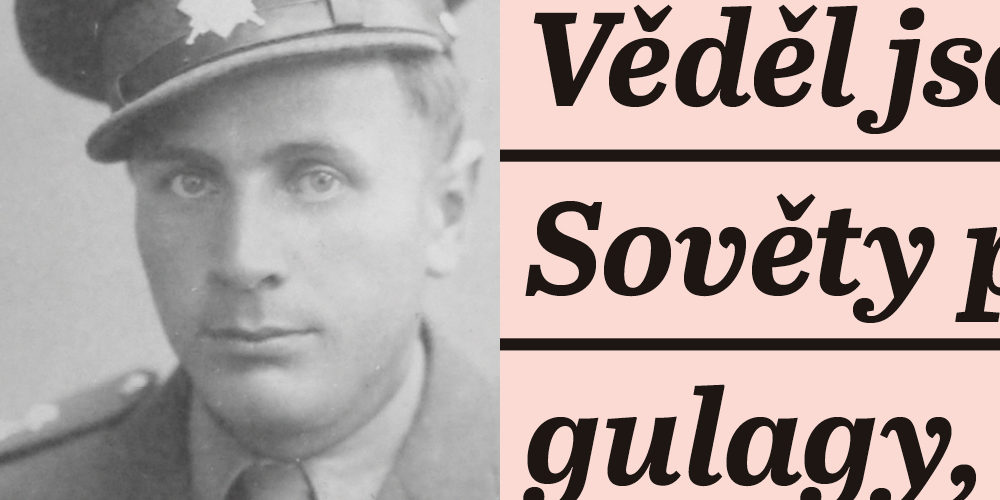Josef Kulich was born in the Czech village of Stromovka in Volhynia in what was then Poland. He lived through the Soviet and Nazi occupations of Volhynia and, in March 1944, he joined the nascent 1st Czechoslovak Army Corps. He was assigned to the tank troops. His leg was torn through by a piece of grenade shrapnel near Krosno, and he fought at Dukla and took part in the Ostrava-Opava operation, as well as other liberation battles in Czechoslovakia.
After the war, he settled in Břvany near Louny and worked as a private farmer. He suspected that a loss of freedom would come with the Red Army to Czechoslovakia. He recalled a meeting in a Prague hotel in 1945: “One day a man sat down with me and I told him what I had experienced, how things would be here with the Soviet Union. Gulags, kolkhozes. I knew it would come here. And he said that it was impossible, that we were a cultivated nation. And I answered him:
“Exactly! Because we’re a cultivated nation, they’re going to crack down on us before the Ukrainians.”
Josef Kulich was right. After February 1948, collectivization also took place in Czechoslovakia, and he himself faced pressure to join a collective farm. After his experience in the Soviet Union, he knew what resistance would mean for him and his family.
Surveillance
After February 1948, the communists, following the Soviet model, eliminated civil liberties. They stole from everyone who owned land or other property. They imprisoned thousands of people in labor camps, where many mined uranium ore for the Soviet Union in inhumane conditions. Hundreds of those who were inconvenient were murdered or sentenced to death and executed by the communists (Píka, Horáková, Broj, Slánský, and others). They isolated the country from the free world and introduced censorship. Not everyone surrendered. Brave people founded resistance groups and smuggled refugees across the border. They resisted the incipient totalitarianism with words and deeds.
But it did not start on 25 February 1948. The Communist Party, strengthened by the authority of the Soviet Union with the halo of the “liberator from Nazism,” had already become a political hegemony, as it confirmed by winning the semi-free elections in 1946. The comrades were lying then when they assured voters that they would not go the Soviet way, that “there will be no collective farms in our country.” After the February coup they declared that “the will of the ruling class is above the law.” And this will of the workers was “represented” by the Communist Party. For forty long years the country submitted to the will of the leaders of the Soviet Union. The Communist Party was subject to directives from Moscow on fundamental issues. Soviet advisers oversaw the course of fabricated show trials. However, none of this removes the main responsibility from the domestic actors for the widespread crimes that characterized the domestic totalitarian system.



